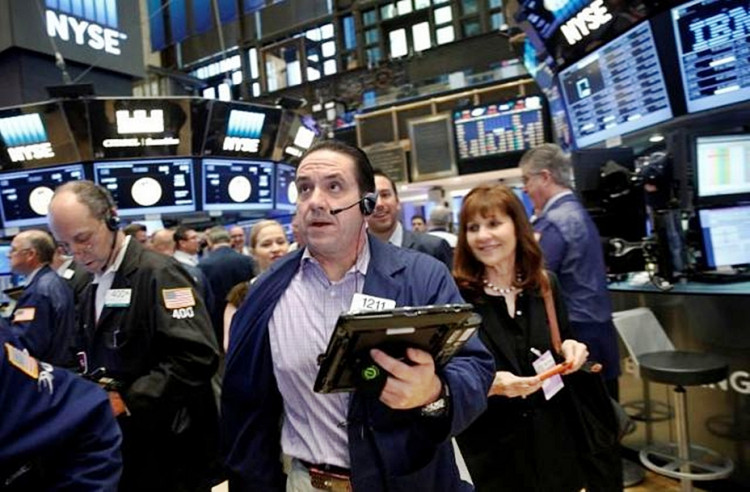Wall Street tumbled to its worst day of the year Wednesday as the most reliable indicator of an oncoming recession made its presence felt.
The Dow Jones Industrial Average lost over 800 points following the inversion of the yield on the benchmark 10-year Treasury note, whose fall has predicted seven of the last nine U.S. recessions.
The yield on the benchmark 10-year Treasury note stood at 1.623% early Wednesday, which was well below the 2-year yield at 1.634%. Wall Street analysts said the last inversion of this part of the yield curve came in December 2005, or two years before the Great Recession hit in 2008.
On average, a recession in the U.S. strikes 22 months following such an inversion, noted Credit Suisse. Twenty-two months from now will take us to June 2021. This means a recession is a certainty any time in 2021.
Yield on the U.S. 30-year bond on Wednesday fell to an all-time low at 2.02%, exceeding its former record low of 2.0889% in 2016 following Britain's Brexit vote.
The historic inversions of the 10-year and 30-year Treasury notes coming in tandem reveal investors are increasingly worried about Trump's trade wars and are preparing for a recession in both the U.S. and global economies by fleeing to safer investments such as gold.
"The U.S. equity market is on borrowed time after the yield curve inverts," said Bank of America in a note to investors.
Credit Suisse pointed out there have been five inversions of the 2-year and 10-year yields since 1978 and all were precursors to a recession. There is, however, a large lag from the time the yield curve inverts to the onset of the actual recession. Data shows a recession occurred 22 months after the inversion, on average, said Credit Suisse.
"Historically speaking the inversion of that benchmark yield curve measure means that we now must expect a recession anywhere from six-to-18 months from today which will drastically, and negatively, shift our medium-to-longer term outlook on the broader markets," according to Tom Essaye, founder of The Sevens Report.
Analysts noted that Wall Street's dramatic fall Wednesday after a stunning recovery Monday is a clear signal from investors to president Donald Trump that they don't approve of his trade war with the world that is stoking uncertainty and volatility.
The greater fear among investors now is the impact of an inevitable global recession triggered by Trump's protectionist policies. Analysts said Germany and Europe are already in recession and Asia is expected to follow suit within the year.
Adding to investor concerns is the record amount of debt the U.S. has amassed under Trump's presidency is already larger than the country's entire debt before the Great Recession.






